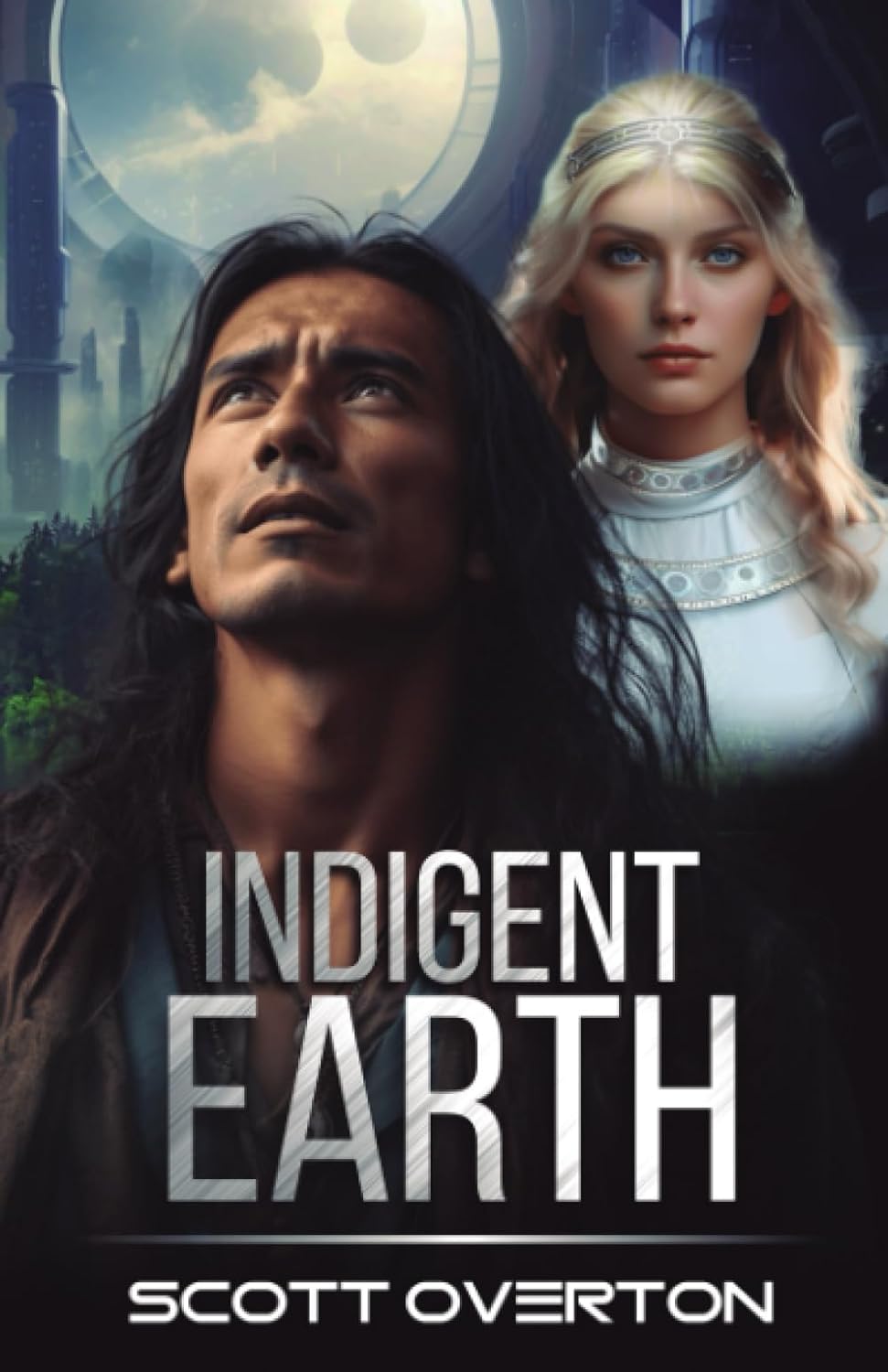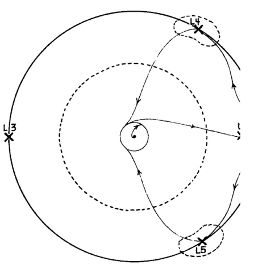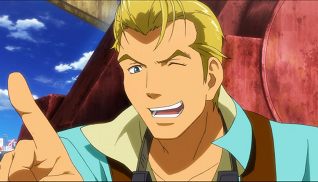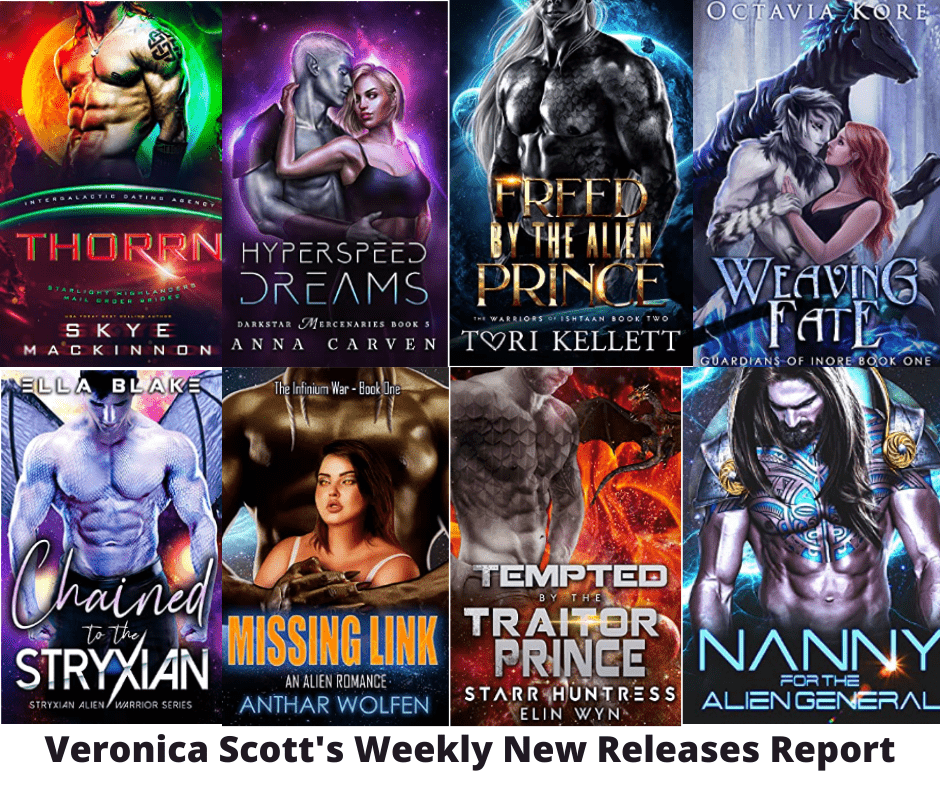
OBIR: Occasional Biased and Ignorant Reviews reflecting this reader’s opinion.

Indigent Earth – by Scott Overton
Publisher: No Walls Publishing, Sudbury, Ontario, Canada, 2023.
Premise:
The best and the brightest fled the dying Earth, establishing flourishing, self-sufficient colonies throughout the Solar System. To their delight, the natural environment of Earth eventually rejuvenates. For the first time in 500 years, off-worlders return to the home planet in search of surviving remnants of pre-collapse humanity.
Review:
As someone who loves concept-driven science fiction above all, I found the premise wonderfully exciting. All sorts of possibilities came to mind. I imagined one or more stone-age civilizations as sophisticated as the early Egyptians might have arisen amid the ruins, and that the colonists would find it relatively easy to guide the locals to greater heights simply by revealing the wonders of their own high culture and technology. No doubt conservative minded curmudgeons might object, but who could resist the wonders of the future offered to them in abundance?
Bear in mind my past vision of the future was firmly based on the 1950’s era science fiction I imprinted on in my childhood. Of course technology would continue to improve and make life better. Of course society would become better educated, more rational, and saner. Of course the future would inevitably find the human race prosperous, happy, and free of poverty, disease, crime and war. Of course. Isn’t that what science fiction promised?
Well, now I live in the future of my past. From personal observation I have discovered that the human race is incapable of progress. Oh, to be sure, there have been improvements here and there. Cat scanners, for instance. An older relative complained of chronic headaches in the 1950s. X-rays indicated nothing amiss. Not till the autopsy did they discover the brain tumour which killed her. Had Cat scanners been available then, perhaps an operation could have accomplished something. Modern technology has its uses.
But, as current events show, we’re still the same bloody apes we’ve always been. It’s hardwired into us, a matter of genetics. Many argue that our intellect will enable us to solve problems. But we’re no smarter than we were 2,000 years ago, or 10,000 years ago. As always, the cleverer the individual, the greater the ability to justify and rationalize incredibly evil actions. As a species, we’re never going to change. Not in the foreseeable future, anyway.
That said, because of our true nature the premise offers far more complexity than my childhood naiveté was capable of imagining. I’m glad to pronounce the plot realistic and credible, at least from a human psychology point of view, and as a variation of the old Gernsbackian tradition of a glorious technological future, positively subversive.
The two characters on the cover are the main protagonists. You might think, from the cover, that the book is basically a romance, perhaps with SF trappings, but fundamentally a romance. Yes and no. The couple do relate to one another in the course of the book, but their feelings, expectations, functions, motivations and decisions are dictated by their roles in their respective societies, to the point of reflecting all the problematic interactions between the two civilizations. There are no easy solutions to any of their problems, and that includes their difficulty getting along with each other. Lot of personal tension in this book in addition to the threat of societal collapse, war, mass death and general unhappiness. Keeps things interesting literally page by page.
The man on the cover is an Earth-dweller named Killian Morningcloud. He lives out in the country with his aunt and uncle on a homestead some thirty kilometres from the nearest town. It’s a hard scrabble existence. It is taboo to kill animals or cut down trees (the better to help nature recover) so you grow what you can and scrounge pre-collapse refuse to build anything or to fashion tools. High tech, or tech of any kind really, no longer exists.
Still, Killian is aware of certain lore passed down over generations. He dreams of the day off-worlders will return. He envisions beautiful golden spaceships and space colonies filled with wonders. He hopes the off-worlders will show him everything and allow him to join their perfect society. His expectations will be dashed.
The woman on the cover is Natira Celestia, the highest-rated broadcast journalist aboard the Tellura Prime, the massive space colony which rules the Confederacy of colonies scattered about the Solar System. A member of the ruling class, she is also a Tanta, an elite group specially bred to physically cope with the high gravity of Earth. She will be a member of the first away team to land on the planet.
Natira, too, dreams of the unification of the “Great Divide.” Aware that the teeming billions of humans on Earth had died off when the Earth’s ability to sustain them collapsed, she is convinced nothing remains but “noble savages,” strong and clean and pure, brave enough to survive the worst of conditions with a noble soul admirable in the extreme. She genuinely believes the reunification of humanity, combining the advanced society of the colonists with the ultimate nobility of man at his most primitive but pure level, will render humanity perfect and worthy of expanding to the stars. Boy, is she going to be disappointed.
You might think, from his name, that Killian Morningcloud is of First Nation’s descent. Well, possibly, but in fact virtually nothing of former cultures remain. Firstly, because virtually all of humanity died from disease, starvation, and strife, and with it almost all of accumulated knowledge, tradition, and culture. Secondly, surviving communities, seldom more than a couple of thousand individuals, live in shantytowns outside depots left behind by the colonists when they fled the Earth.
The depots, sealed self-sufficient factories, provide food, safe drinking water, and manufactured items like clothing and cooking pots on request. This can be iffy, in that items are rationed according to manufacturing capacity, and are sometimes not available. Themselves mass-produced to a common design, everywhere on Earth the depots respond only to request delivered in NorthAm, or English. Robot teachers attached to the depots speak only NorthAm. Result? NorthAm is the only language to have survived the collapse.
Still, at least in the town of Borealis, the one closest to Killian’s homestead, there is respect for family groupings and for elders in particular. A semblance of a social order exists, albeit undercut by a persistent sense of helplessness and lack of hope for the future. More and more of the teaching robots have lapsed into silence and immobility. What little knowledge exists is handed down in family life and is growing weaker and less extensive with each succeeding generation. Life is growing dire. The off-worlders with their vast knowledge and mature wisdom couldn’t have chosen a better time to return.
Killian and Natira meet in Borealis. First impressions are disastrous. They no longer wish to endure each other’s presence, but circumstances throw them together whether they like it or not. Virtually the entire book relates their combative relationship while they attempt to thwart enemies in common. Makes for much wry comment on the average person’s innate tendency to second guess and misinterpret other people. Misunderstandings abound. This is a source of much humour.
It turns out that the two cultures are so radically different that the pair can’t even understand each other’s attitude toward lust, love or sex. Test tube babies and the abandonment of natural birth have long been a staple of science fiction, I think because of some puritanical desire to avoid anything “messy.” The future can’t be the future unless it is clean and sparkling. But in this book the psychological implications of abandoning the natural way of things are explored to hilarious effect. Killian and Natira are both experienced adults within the restrictions of their respective cultures, but they behave towards each other as if they were teenagers fearful of the consequences of a first date carried too far. In a way, their relationship is a metaphor for young people forcing themselves to learn how to socialize in the hope it will solve their personal problems. Quite amusing.
Much of the book takes place in the wilderness. I suspect the author is an outdoorsman with a great deal of experience. None of the setting description is generic. Each location described feels like an actual place in the (formerly) Canadian Wilderness. A lengthy description of what it is like to endure the attention of clouds of black flies reminded me why I’m glad I’m a city boy. The wilderness is not for me. Nevertheless, it is lovingly described in detail to the point of allowing the reader to easily understand why Killian loves the land he lives in. At the same time, enough is revealed about the subsistence level of life near a depot to render his desire to go off world convincing.
Fear not, there is more than just the personal problems to relate to, namely political shenanigans galore, vested interests on a rampage, remnants of past technology, out-of-control new technology, and sufficient threats from multiple directions to keep both protagonists and the plot hopping from one crisis to the next. Throughout the book the reader wonders what is going on, why is it happening, and how can things possibly get worse. Fortunately, one revelation follows another, albeit as a result of much stress and daring-do, and everything is explained by a most satisfying end which ties up all the numerous threads neatly.
CONCLUSION:
The most intriguing aspect of this book is the way the author extrapolates complications and problems beyond the “perfection” a simplistic approach to technological progress was long believed to guarantee. Technology is shown to be merely an incidental backdrop to the grand theatre of human social interaction which, as always, can be both beautiful and brutal.
In short, stop worshipping technology. Our future depends on the fact we are human beings, which is both a virtue and a flaw. As long as we are mindful of that, our future has a chance.
The book is both fun to read and thought-provoking. It is genuine, highly entertaining, adventure science fiction.
Find it at: < Indigent Earth >
——

Untold Stories: an anthology.
Publisher: Sparkstreet Media, Dublin Creative Writers, Dublin, Ohio, USA, October 2023.
Curated and Edited – by Anne Johnston & Chris Vannes
Cover – by Olga Begak
Note: I normally review only Canadian works, but this American anthology includes stories by two of my favourite Canadian authors. Since I have space left in this review, I thought I would review them.
As a blub for UNTOLD STORIES explains:
“UNTOLD STORIES is a collection of short stories & flash fiction written by established and emerging authors of the Dublin Creative Writers, as well as some new friends we’ve invited along. Spanning a range of genres and styles, these works depict new perspectives on the myths and history we’ve grown up with as well as the hidden stories we keep to ourselves.”
For a Cup of Tea – by Lorina Stephens
Premise:
The famous Tea Clipper Cutty Sark is about to sail from Shanghai to London. Foolishly, Captain Gail Malvern has made a wager with the Captain of the Thermopylae that the Cutty Sark will be first to tie up at the London Docks. Foolish, because the wager is huge. Losing the race could ruin him.
Review:
The story captures the reality of life aboard a Tea Clipper with spare but telling detail. Even fully laden, they were the fastest ships afloat and universally admired by sailors everywhere. It was a privilege to serve on one, but also hard and dangerous work. The sailors earned their pay. Especially on this voyage, because of a singular piece of cargo, a brass bottle five feet in height being donated by the Emperor of China to the British Museum.
The bottle is under the care of a Chinese court courier, a rather effeminate, or perhaps just excessively mannered, young man name of Li Tu-hsiu. Malvern resents having his passenger eat at the captain’s table, but that is customary for the rare passengers aboard freight vessels, and besides, it would be bad for business to mistreat an emissary of the Emperor of China.
It turns out that there are forces at work opposed to the bottle leaving China, forces intent on punishing Captain Malvern by making sure the Thermopylae wins the race. This is beyond Malvern’s skill and experience. He is forced to rely on Li Tu-hsiu’s knowledge of heathen beliefs which no good Christian should ever have to think about, let alone tremble in fear over. However, he has no choice in the matter.
This story nicely intertwines western superstition about the sea with Chinese myths regarding same, on the basis of “what if” the myths are based on reality? To my mind it captures some of the hopelessness present in Edgar Allan Poe’s “The Narrative of Arthur Gordon Pym of Nantucket” or in “The Rime of the Ancient Mariner” by Samuel Taylor Coleridge. It has that authentic old sea dog dread to it. Well done.
The Last Three Books of Diophantos – by Jean-Louis Trudel
Premise:
Who knew a palimpsest could inspire terror?
Review:
As a lover of the classics, I dream of the discovery of more palimpsests, old books written over ancient writing that can be teased into view by modern technology. Often, it’s merely yet another edition of the Iliad, but sometimes lost plays or histories. So naturally a story beginning with the unexpected acquisition of a palimpsest stirs my sense of wonder.
There are horror elements, so the early manifestation of a supernatural being seemed entirely appropriate. A key to understanding the plot is the identity of the apparition which is held back toward the end of the story. However, because I know Western classic history (Greek/Roman), I recognized the individual instantly from the description. This only increased my pleasure reading the story because it put everything into a solid context right from the get-go. Don’t worry. Not going to give the character’s identity away. For those unfamiliar with this particular bit of history, the context has to be laid out in the course of the story in order to render the resolution clear and understandable. Not going to interfere with that process here.
Suffice to say I really enjoyed reading this story. It brings together two of my main interests: speculative fiction and ancient history. My kind of story. I loved it.
CONCLUSION:
On the basis of these two stories, the rest of the anthology is probably equally cool and worth checking out.
Find it at: < Untold Stories: an anthology >










